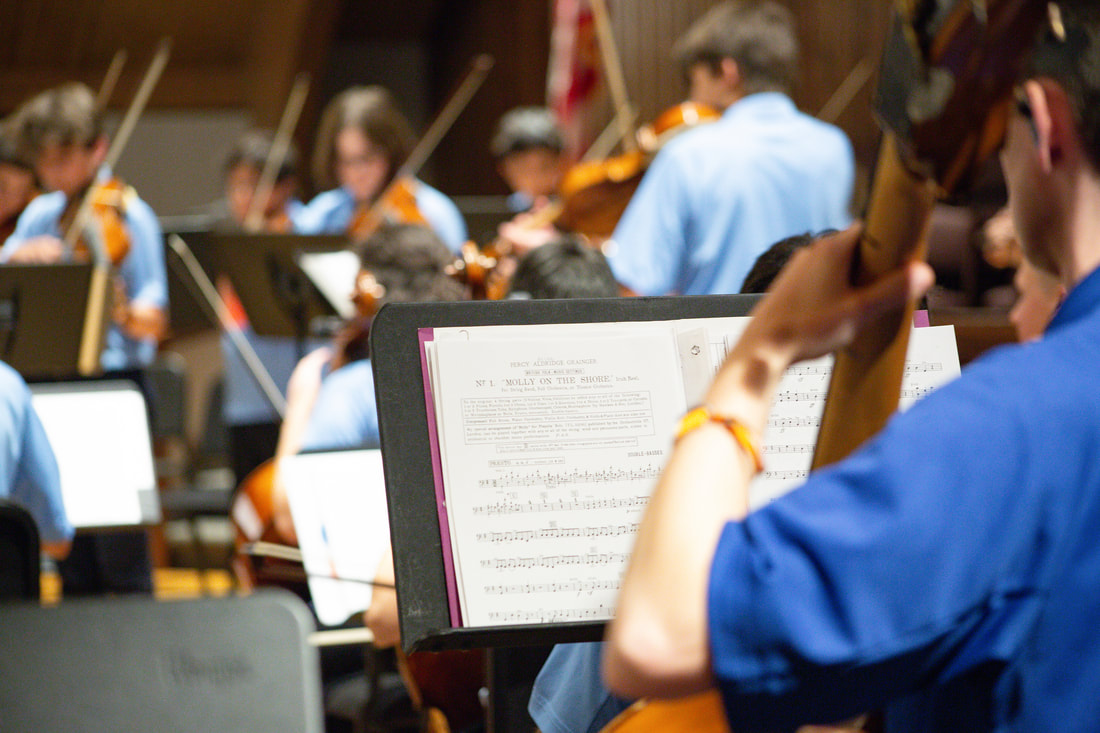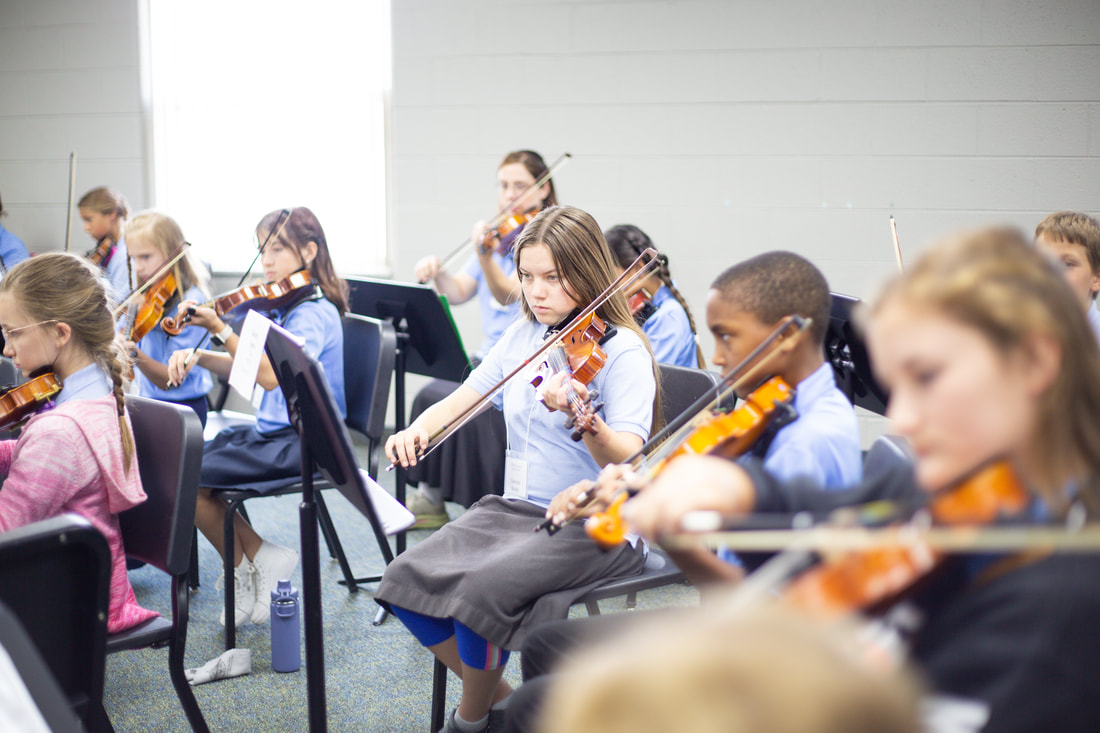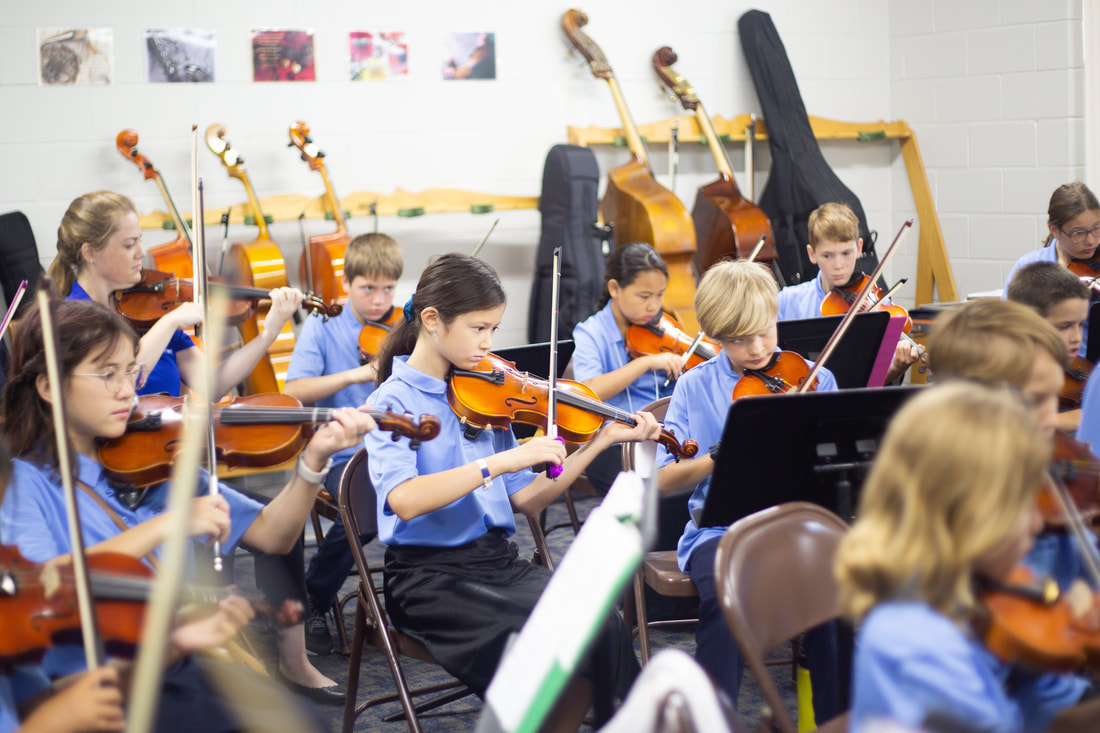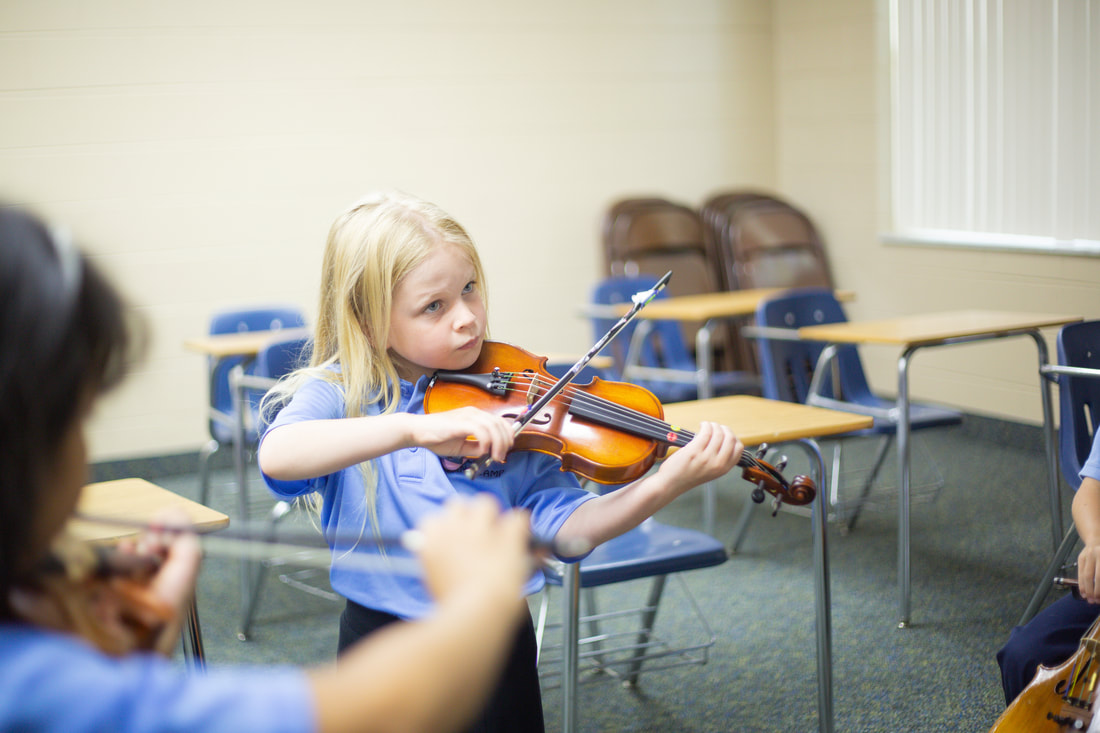Overview
For all students except those in the Twinkle track, please note that when registering, the form includes a student assessment section. Before you register, we recommend that you contact your private teacher and ask them to assess your student's ability on a scale of 1-5 in the areas of sight-reading, playing confidence, rhythm, intonation, technique, playing in 3rd position, and playing in 5th position.
Schedule
A sample schedule is provided to give you a picture of an average day at camp. Each individual track page also offers example music to assist you in choosing a level for your student. Below are details for further assistance. Please email us with any questions.
| Sample schedule.pdf | |
| File Size: | 106 kb |
| File Type: | |
When is my student ready to move up to the next track?
The tracks at OCMS String Camp are based on musical ability rather than age or grade. Your child is ready to move up to the next track when they have demonstrated the necessary skills and abilities.
This is best discussed with your child's music instructor, if possible.
Alpha is a great first orchestra experience for beginner-level players.
Participants in Alpha should be able to read music at the level of Suzuki book 1 (middle). They must be able to play on all strings on their instrument and hold a part without stopping. They should be able to change dynamic and tempo.
The Beta orchestra has a full day of camp rather than a half day. Your child will need the ability to focus and play for longer periods of time. Beta students should be comfortable with repertoire comparable to Suzuki books 3-4. They should be able to follow dynamics, articulations, and expressive markings, and play in keys up to three sharps and two flats. They also are challenged by playing in a combined orchestra with the more advanced campers.
Gamma and Delta are the most advanced tracks and involve chamber music as well as orchestral playing. Students should have good tone and strong left-hand technique, and must be able to confidently hold their own on a part.
Gamma students should be fluent in most keys and have experience in vibrato and shifting up to fourth position. They also should be comfortable with spiccato bowing.
Delta students should have mastery of the higher positions and be able to play double-stops. They also should be comfortable with a wide range of bowing techniques. Cellists students must be fluent in tenor clef.
Placement in the Gamma and Delta orchestras is determined by audition.
The audition panel will decide when returning students are ready to move up to the highest level.
This is best discussed with your child's music instructor, if possible.
Alpha is a great first orchestra experience for beginner-level players.
Participants in Alpha should be able to read music at the level of Suzuki book 1 (middle). They must be able to play on all strings on their instrument and hold a part without stopping. They should be able to change dynamic and tempo.
The Beta orchestra has a full day of camp rather than a half day. Your child will need the ability to focus and play for longer periods of time. Beta students should be comfortable with repertoire comparable to Suzuki books 3-4. They should be able to follow dynamics, articulations, and expressive markings, and play in keys up to three sharps and two flats. They also are challenged by playing in a combined orchestra with the more advanced campers.
Gamma and Delta are the most advanced tracks and involve chamber music as well as orchestral playing. Students should have good tone and strong left-hand technique, and must be able to confidently hold their own on a part.
Gamma students should be fluent in most keys and have experience in vibrato and shifting up to fourth position. They also should be comfortable with spiccato bowing.
Delta students should have mastery of the higher positions and be able to play double-stops. They also should be comfortable with a wide range of bowing techniques. Cellists students must be fluent in tenor clef.
Placement in the Gamma and Delta orchestras is determined by audition.
The audition panel will decide when returning students are ready to move up to the highest level.




